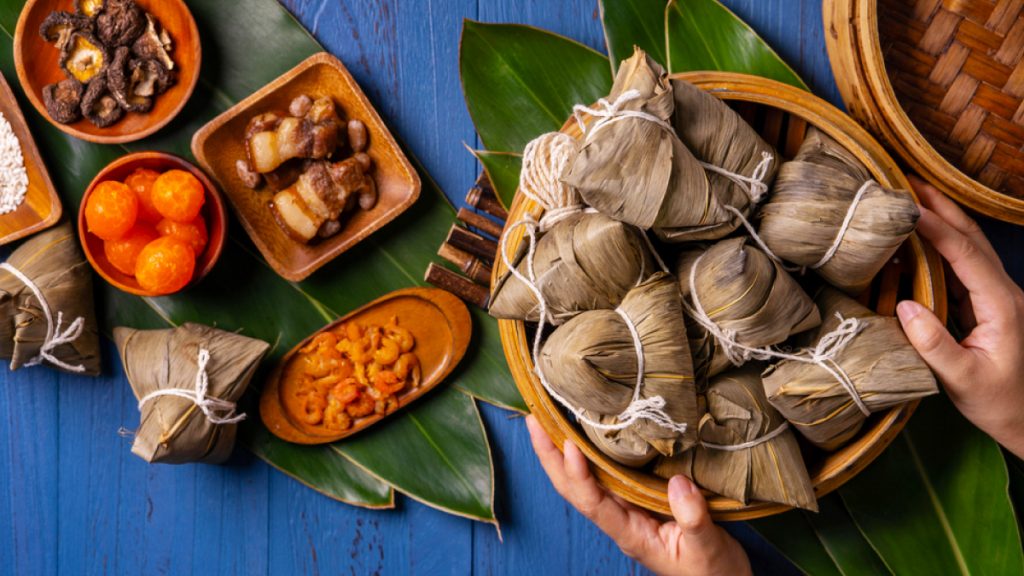The Dragon Boat Festival, also known as Duanwu Festival, is a traditional Chinese festival celebrated on the 5th day of the 5th month of the lunar calendar. This vibrant festival is known for its dragon boat races, zongzi (sticky rice dumplings), and cultural activities. In Malaysia, the Dragon Boat Festival is celebrated with enthusiasm, especially in regions with significant Chinese communities.
Dragon Boat Festival Dates (2024-2027)
| Year | Date | Day | States Observed |
|---|---|---|---|
| 2024 | 10 June | Monday | Nationwide (observance) |
| 2025 | 31 May | Saturday | Nationwide (observance) |
| 2026 | 19 June | Friday | Nationwide (observance) |
| 2027 | 8 June | Tuesday | Nationwide (observance) |
History and Background
The Dragon Boat Festival has its origins in ancient China and is associated with various legends, the most popular being the commemoration of the poet Qu Yuan. Qu Yuan drowned himself in the Miluo River in protest against government corruption. Locals raced out in boats to save him and threw rice into the water to keep fish away from his body. This act evolved into the dragon boat races and the tradition of eating zongzi.
Malaysian Traditions and Cultural Significance
Dragon Boat Races
The highlight of the Dragon Boat Festival in Malaysia is the dragon boat races. Teams of paddlers, guided by a drummer, race in long, narrow boats decorated to resemble dragons. These races symbolize teamwork, strength, and perseverance. Spectators gather to cheer on the teams, creating a lively and festive atmosphere.
Eating Zongzi
Zongzi, or sticky rice dumplings wrapped in bamboo leaves, are a traditional food associated with the Dragon Boat Festival. These dumplings are filled with various ingredients such as meat, beans, and salted egg yolk. Families and friends exchange zongzi and enjoy them together, celebrating the culinary heritage of the festival.
Cultural Performances
Cultural performances are an integral part of the Dragon Boat Festival celebrations. Traditional Chinese music, dance, and martial arts demonstrations are performed at various venues, adding to the festive spirit. These performances highlight Malaysia’s rich Chinese heritage and provide entertainment and cultural education for all ages.
Prayers and Offerings
Some families observe the Dragon Boat Festival by making offerings and prayers to commemorate Qu Yuan and other deities. These rituals are usually performed at home or in temples, reflecting the spiritual aspect of the festival. The offerings may include food, incense, and paper money.
Community Gatherings
The Dragon Boat Festival is also a time for community gatherings and family reunions. People come together to celebrate with festive meals, dragon boat races, and cultural activities. These gatherings strengthen community bonds and promote a sense of unity and shared heritage.
Dragon Boat Festival Celebrations Across Malaysia
Penang
Penang is known for its vibrant Dragon Boat Festival celebrations. The Penang International Dragon Boat Festival attracts teams from around the world, competing in thrilling races. George Town’s waterfront comes alive with dragon boat races, cultural performances, and food stalls, drawing large crowds.
Kuala Lumpur
In Kuala Lumpur, the Dragon Boat Festival is celebrated with dragon boat races at various locations, including the Putrajaya Lake. The city’s Chinese community participates in traditional activities such as making and eating zongzi, attending cultural performances, and engaging in community events.
Johor Bahru
Johor Bahru hosts dragon boat races and cultural events to mark the Dragon Boat Festival. The races, held at venues such as Danga Bay, attract local and international teams. The city’s celebrations also include traditional music, dance performances, and family gatherings.
Sabah and Sarawak
In East Malaysia, the states of Sabah and Sarawak celebrate the Dragon Boat Festival with local customs and festivities. Dragon boat races are held in cities like Kota Kinabalu and Kuching, attracting participants and spectators. The festival’s traditions, including making zongzi and cultural performances, are observed with enthusiasm.
Conclusion: Celebrating Heritage and Team Spirit
The Dragon Boat Festival in Malaysia is a vibrant celebration of tradition, team spirit, and cultural heritage. Through dragon boat races, eating zongzi, cultural performances, and community gatherings, Malaysians embrace the festival’s rich history and cultural significance. The festival fosters a sense of unity, teamwork, and pride in shared heritage, making it a cherished part of Malaysia’s cultural calendar.
Frequently Asked Questions (FAQs)
Is the Dragon Boat Festival a public holiday in Malaysia?
No, the Dragon Boat Festival is not a public holiday in Malaysia. It is an observance celebrated by the Chinese community across the country.
How do Malaysians typically celebrate the Dragon Boat Festival?
Malaysians celebrate the Dragon Boat Festival with dragon boat races, eating zongzi, cultural performances, prayers, and community gatherings.
What are zongzi, and what are some popular fillings?
Zongzi are sticky rice dumplings wrapped in bamboo leaves, traditionally eaten during the Dragon Boat Festival. Popular fillings include meat, beans, salted egg yolk, and sweet red bean paste.
What are some popular destinations in Malaysia to experience the Dragon Boat Festival?
Popular destinations include Penang, Kuala Lumpur, Johor Bahru, and the states of Sabah and Sarawak, where dragon boat races, cultural performances, and festive activities are organised to celebrate the festival.

